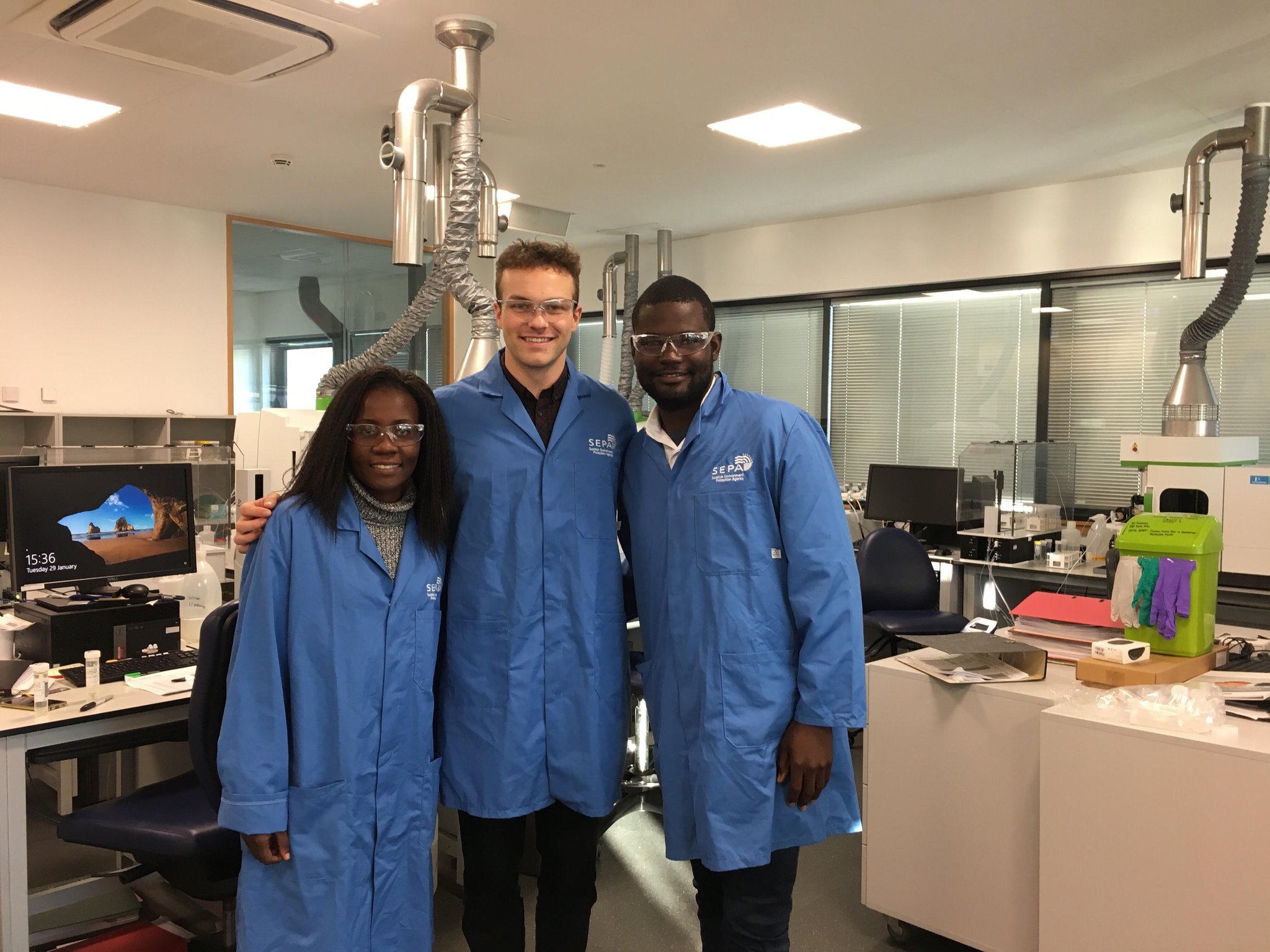Malawi Climate Leaders Visit SEPA
I heard about snow, I saw it on TV but I never had the chance to see it in real life. It was so pleasing and satisfying to see snow blanket the farmland on our way to SEPA for our meeting.
We started the day with a presentation that covered what the Scottish Environment Protection Agency does, what its goals are and what it does to achieve them. We learned of SEPA’s strategy and the motives behind their actions and plans. I was moved by the notion that over time, Scotland has been able to pursue environmental protection while being adaptive to changing times and technologies. Worthwhile noting was the fact that Scotland has had to go through various stages to get where it is at present. There was an uphill mountain to climb but people did not feel complacent or accept the situation. They learned from their experiences, including some failure, to get where they are today and this is something I can take back home with me.
SEPA are committed to protect and improve Scotland’s environment, in ways that can also have social and economic benefits. Our visit occurred on the same day as the one-year celebration of the Sustainable Growth Agreement (SGA) with 2050 Climate Group. This is a document that commits both to positive climate action. SEPA partners with organisations for SGAs that have the vision and foresight to say we need a different society and economy. They are committed to protecting and improving Scotland’s natural environment through helping operators, businesses and individuals realise the many economic and social benefits of good environmental practice. They support organisations that have the vision to go forward and make Scotland a low carbon country. They provide guidance, support, regulations and information to any person or business considering environmental matters.
We also got to hear of the technologies and the systems used to monitor and manage waste management sites. I consider Malawi to be failing with waste management as many manufacturers are disposing their waste as they see fit and are even using their financial muscles to force through retrogressive court injunctions. As a country, Malawi received a regulation to ban the production and use of thin plastic papers. However the manufactures got a court injunction to stop the ban. It is now two years or more down the line and nothing has been done to the injunction.
Malawi also sees very inconsistent rainfall patterns. It has failed to manage the river catchment areas and situation. People have lost their lives and their homes in Malawi’s yearly flooding events. It was great to learn about SEPA’s flood warning system and their mitigation strategies. As they say, failing to plan is planning to fail and we all need evidence to plan effectively.
Among several other talks on land degradation, we learned how the ecosystem is monitored and how through analysing the land and water, SEPA is able to tell the level of pollution at a given site. Walking through the labs was not only exciting and memorial but also a sign of what a committed, science based system towards a cause can achieve.One day I will speak about how education, awareness and advocacy have been brought to the fore by SEPA.
It is no secret that Motherwell did not just give me my first experience seeing snow (which I really enjoyed and loved) but it also gave wisdom and a wider perspective of what an organised and coordinated organisation can achieve for a country. Can we do this at home?
– PromiseMatatiyo, Project Coordinator (https://2050.scot/malawi-climate-leaders/)


